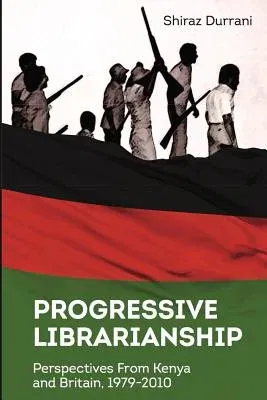Public spending is under threat and public libraries are suffering. At a
time when libraries can play a critical role in supporting people facing
difficult economic and social situations, the dominant conservative
model of librarianship has nothing meaningful to say about the role and
relevance of libraries. It offers more of the same, but no qualitative
change so necessary today. It continues to maintain the myth that there
is no alternative to its own policies and practices. There is thus an
urgent need to alternative ideas and practices to address people's
needs. The progressive librarianship movement is taking up this
challenge. It has also been active in Kenya and Britain but its work is
not widely know. The Kenyan movement differed from the others in that it
grew within the underground political movement in the 1980s - the
December Twelve Movement/Mwakenya. Using original documents, this book
records this hidden history. In the process, it examines key concepts
such as the role of libraries and the relevance of service. Linking
library work with the wider social and political concerns, the book
explores issues such as politics of information, the role of activism
and "neutrality" in library work. It offers an alternative approach to
librarianship, to the training of librarians and to organisational
change to make libraries more relevant to people's lives.


